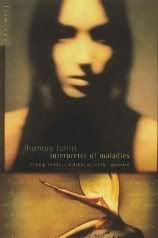Alice Adams is a morality tale about a socially ambitious young woman and her family in a Midwestern city. The family is middle-class, and sliding down in the economic scale. The father has worked in the same job for 20 years and is content. The mother, ambitious for her children, bitterly blames the father for not having made more of himself, for not thinking of his children’s social futures and therefore not having any gumption to do better. Her entire life is focused on her children, especially Alice, being part of upper-class society. The mother is convinced that money and money alone will make the difference and constantly badgers the father to do better.
Alice pours nearly all her energy into making a good “catch”. Quite popular a few years ago, the gentleman callers have vanished. Still, she practices gestures and facial expressions in front of the mirror, works hard at making over clothes (actually, dictating directions to her mother) to keep fashionable, spending all she can on accessories and clothes. She visits a well-to-do friend and basically worms her way into receiving invitations to society events.
Her brother Walter is a bitter young man who hates the situation in which he finds himself, loathes the ‘swells’ that Alice courts so assiduously, and hangs around with a crowd that his mother in particular finds appalling.
A new young man comes to town and is attracted to Alice, who goes all out to land him. But as we see increasingly in her dialogue with him, she misrepresents herself and her family and is terrified of what he will find out from his well-connected society relations.
Meanwhile, her father, goaded beyond endurance by the nagging mother, decides to leave the firm for which he has worked and start a glue factory, using a formula that can be rightly said to belong to his former employer.
The book has a double climax: a dinner party given by the mother for Alice’s young man and the outcome of the father’s business enterprise.
There are no surprises here—in a morality tale, the outcomes are guaranteed. That wouldn’t be a problem if the book were as well written as
The Magnificent Ambersons, but in my opinion, it isn’t.
The Magnificent Ambersons was a complex story, enriched by Tarkington’s observations on the transformation of a small Midwestern town into and industrialized city and the social changes that accompanied the growth.
Alice Adams has a much narrower focus, and while the writing at times is excellent—the description of the dinner party is superb—there is no tension to the story because the reader knows perfectly well how it has to end. Winner of the Pulitzer Prize for 1922, it really suffers by comparison, both in plot, style, and excellence in writing by the previous winner,
The Age of Innocence by Edith Wharton. It’s a good read if your goal is to read the Pulitzer winners. Otherwise, I feel it’s not worth the effort.


